Amy Leibrand
Ontology-based and User-focused Automatic Text Summarization (OATS): Using COVID-19 Risk Factors as an Example
Nov 18, 2020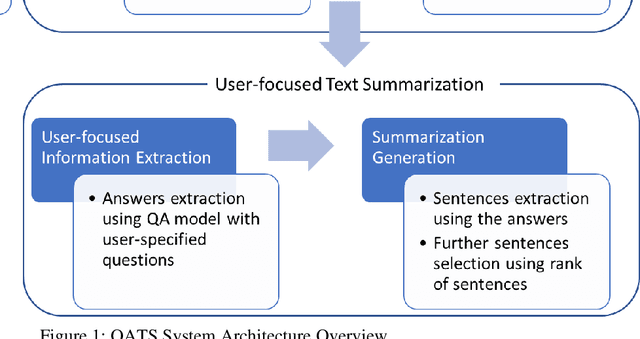

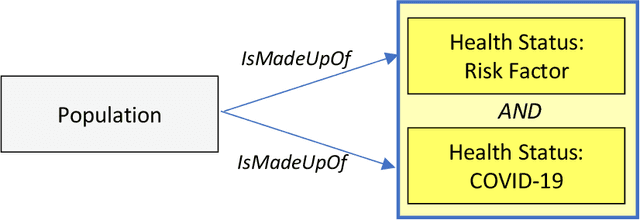

Abstract:This paper proposes a novel Ontology-based and user-focused Automatic Text Summarization (OATS) system, in the setting where the goal is to automatically generate text summarization from unstructured text by extracting sentences containing the information that aligns to the user's focus. OATS consists of two modules: ontology-based topic identification and user-focused text summarization; it first utilizes an ontology-based approach to identify relevant documents to user's interest, and then takes advantage of the answers extracted from a question answering model using questions specified from users for the generation of text summarization. To support the fight against the COVID-19 pandemic, we used COVID-19 risk factors as an example to demonstrate the proposed OATS system with the aim of helping the medical community accurately identify relevant scientific literature and efficiently review the information that addresses risk factors related to COVID-19.
CMS Sematrix: A Tool to Aid the Development of Clinical Quality Measures
Feb 05, 2019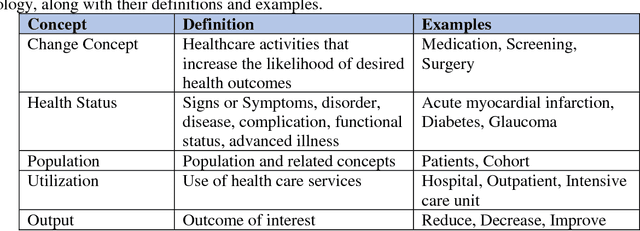
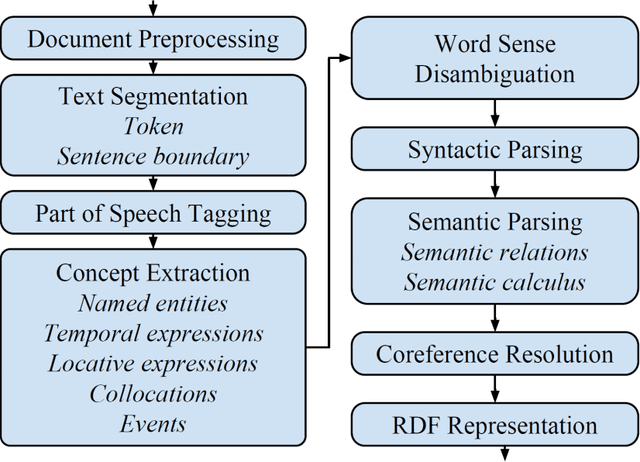
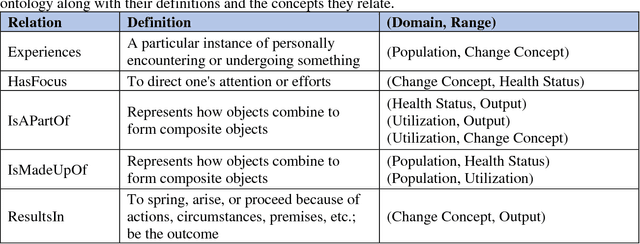
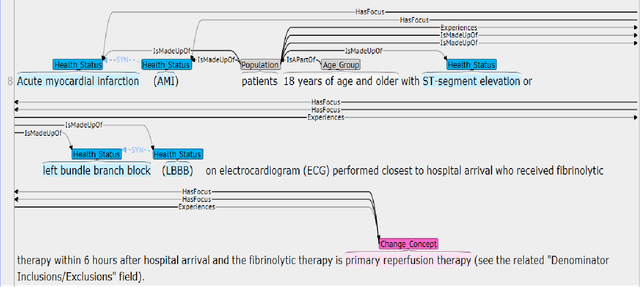
Abstract:As part of the effort to improve quality and to reduce national healthcare costs, the Centers for Medicare and Medicaid Services (CMS) are responsible for creating and maintaining an array of clinical quality measures (CQMs) for assessing healthcare structure, process, outcome, and patient experience across various conditions, clinical specialties, and settings. The development and maintenance of CQMs involves substantial and ongoing evaluation of the evidence on the measure's properties: importance, reliability, validity, feasibility, and usability. As such, CMS conducts monthly environmental scans of the published clinical and health service literature. Conducting time consuming, exhaustive evaluations of the ever-changing healthcare literature presents one of the largest challenges to an evidence-based approach to healthcare quality improvement. Thus, it is imperative to leverage automated techniques to aid CMS in the identification of clinical and health services literature relevant to CQMs. Additionally, the estimated labor hours and related cost savings of using CMS Sematrix compared to a traditional literature review are roughly 818 hours and 122,000 dollars for a single monthly environmental scan.
 Add to Chrome
Add to Chrome Add to Firefox
Add to Firefox Add to Edge
Add to Edge